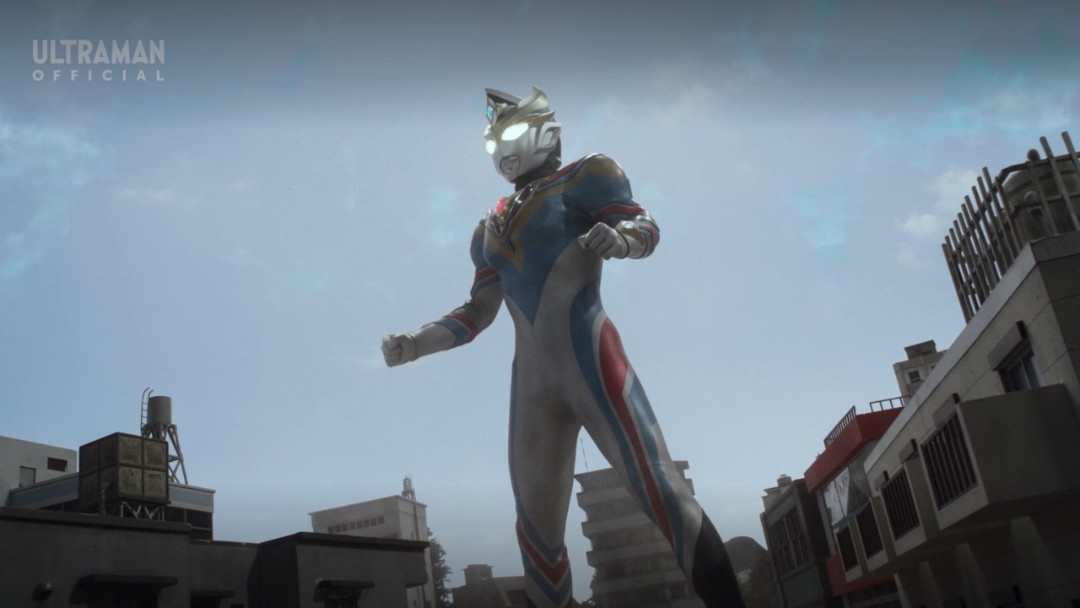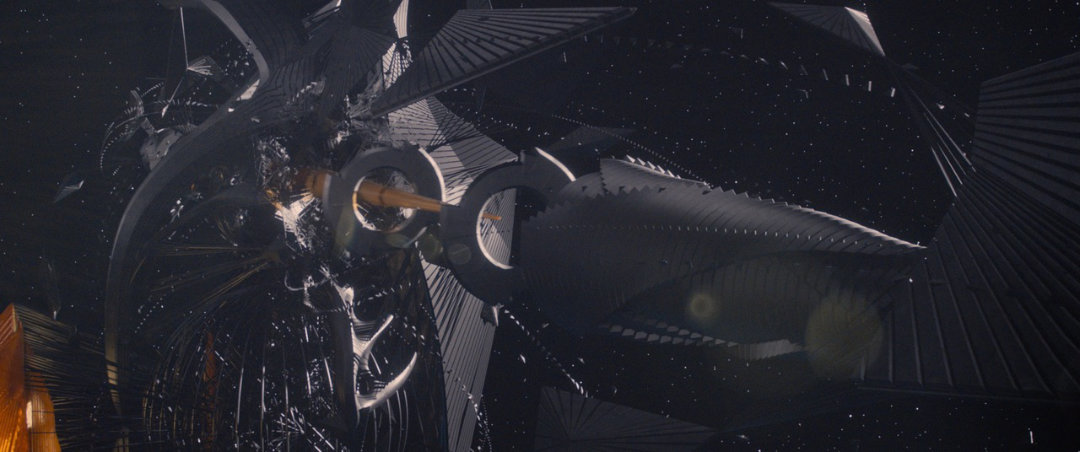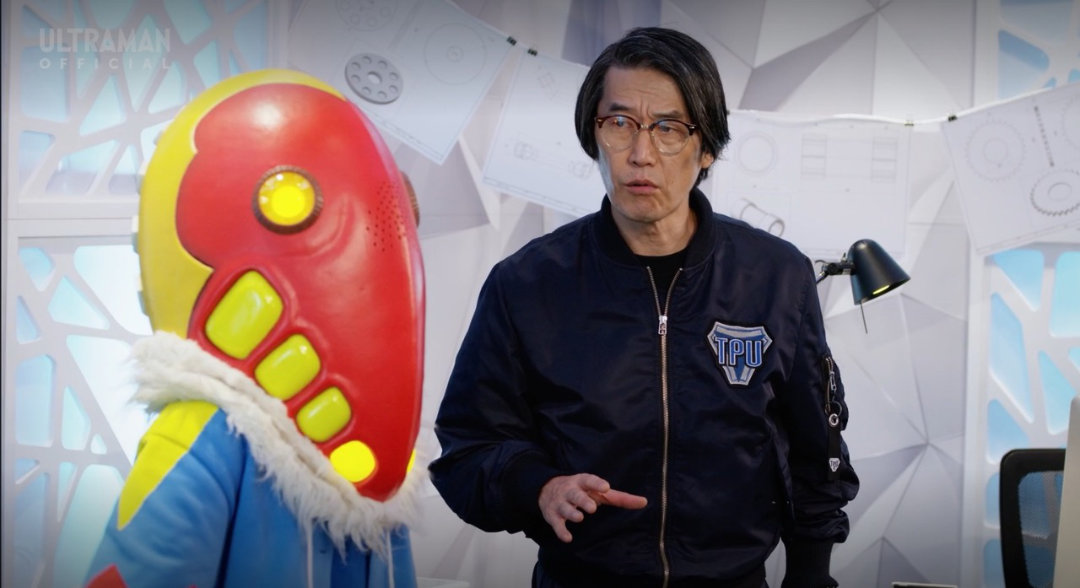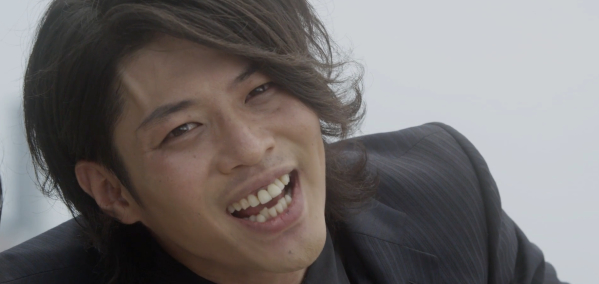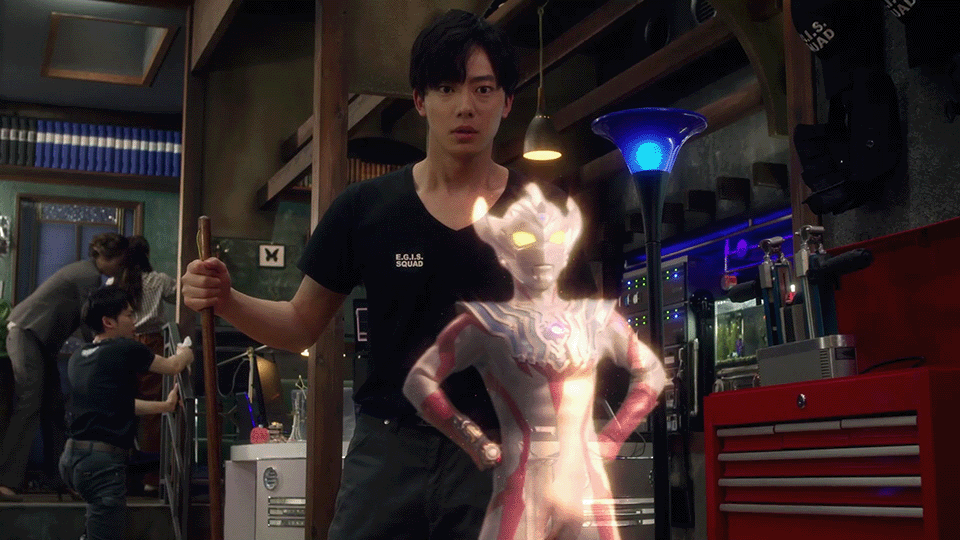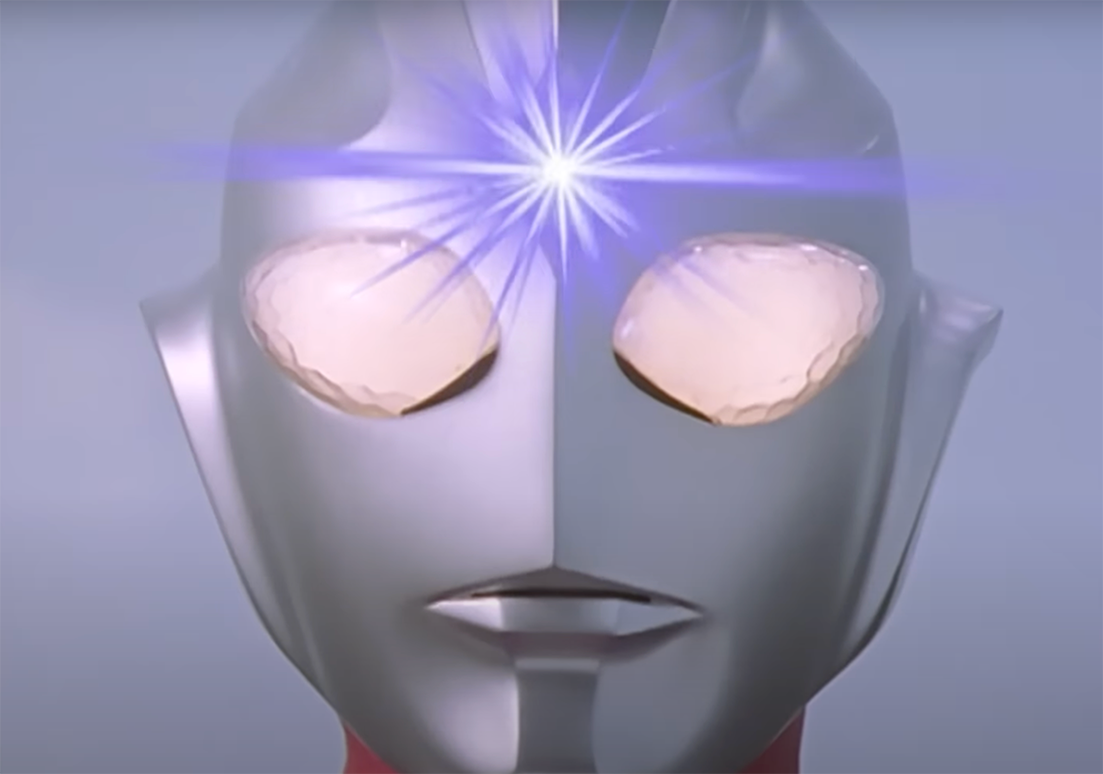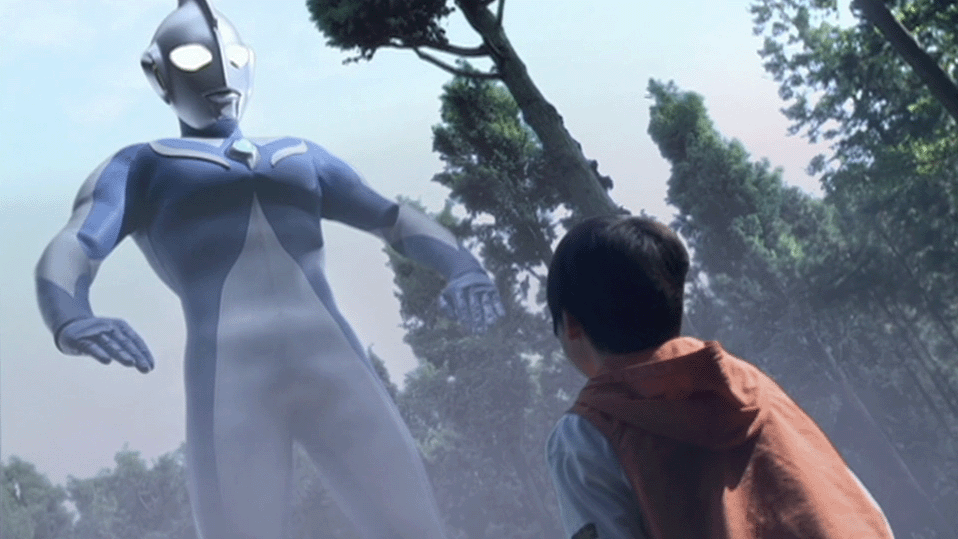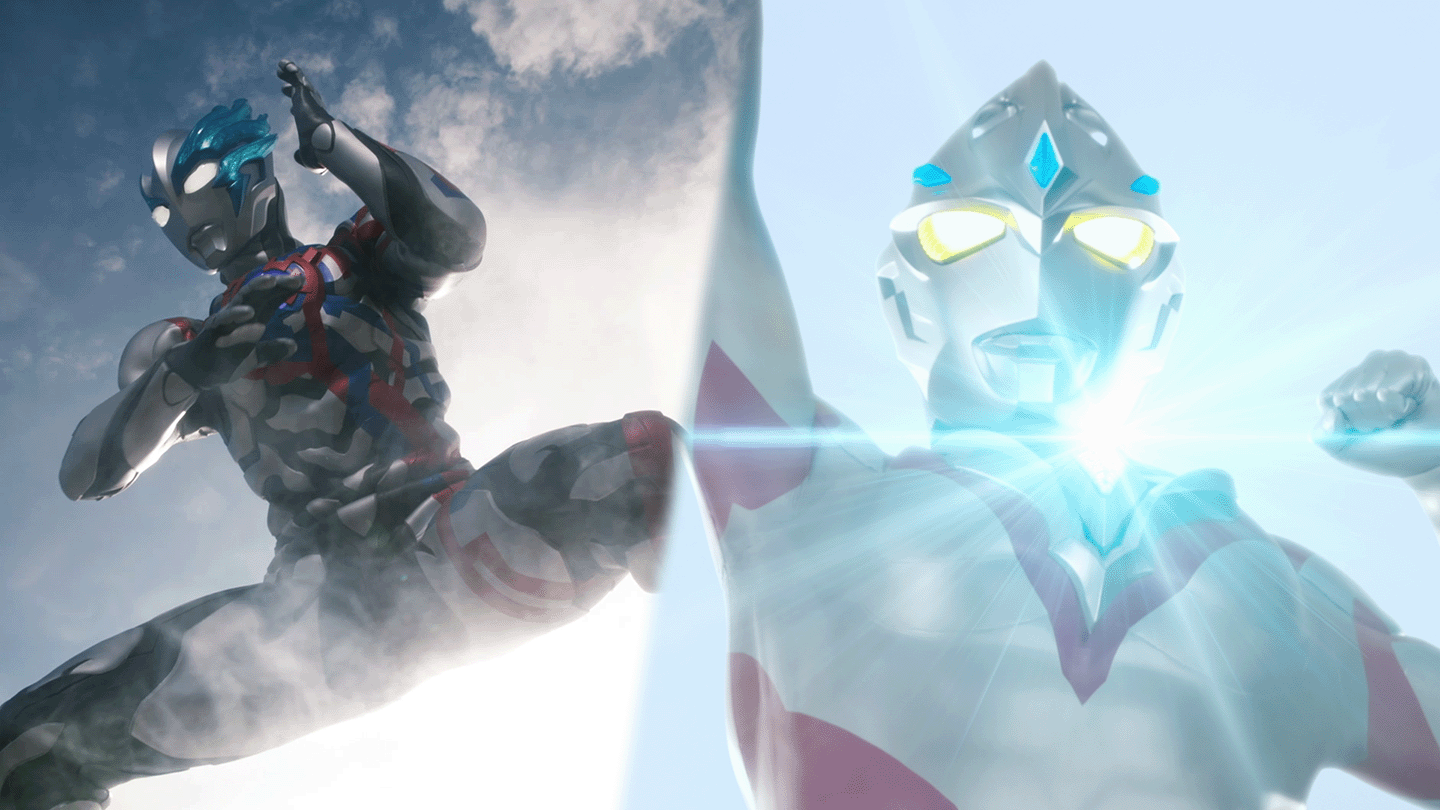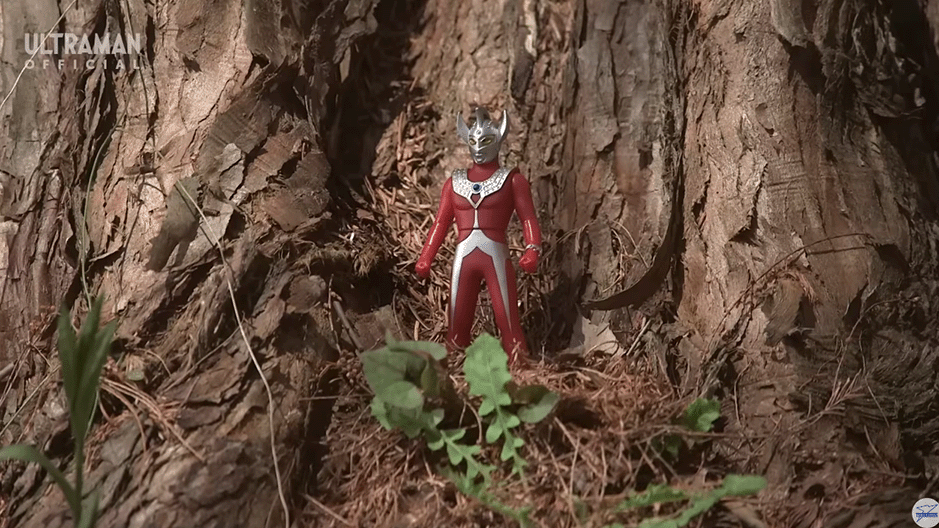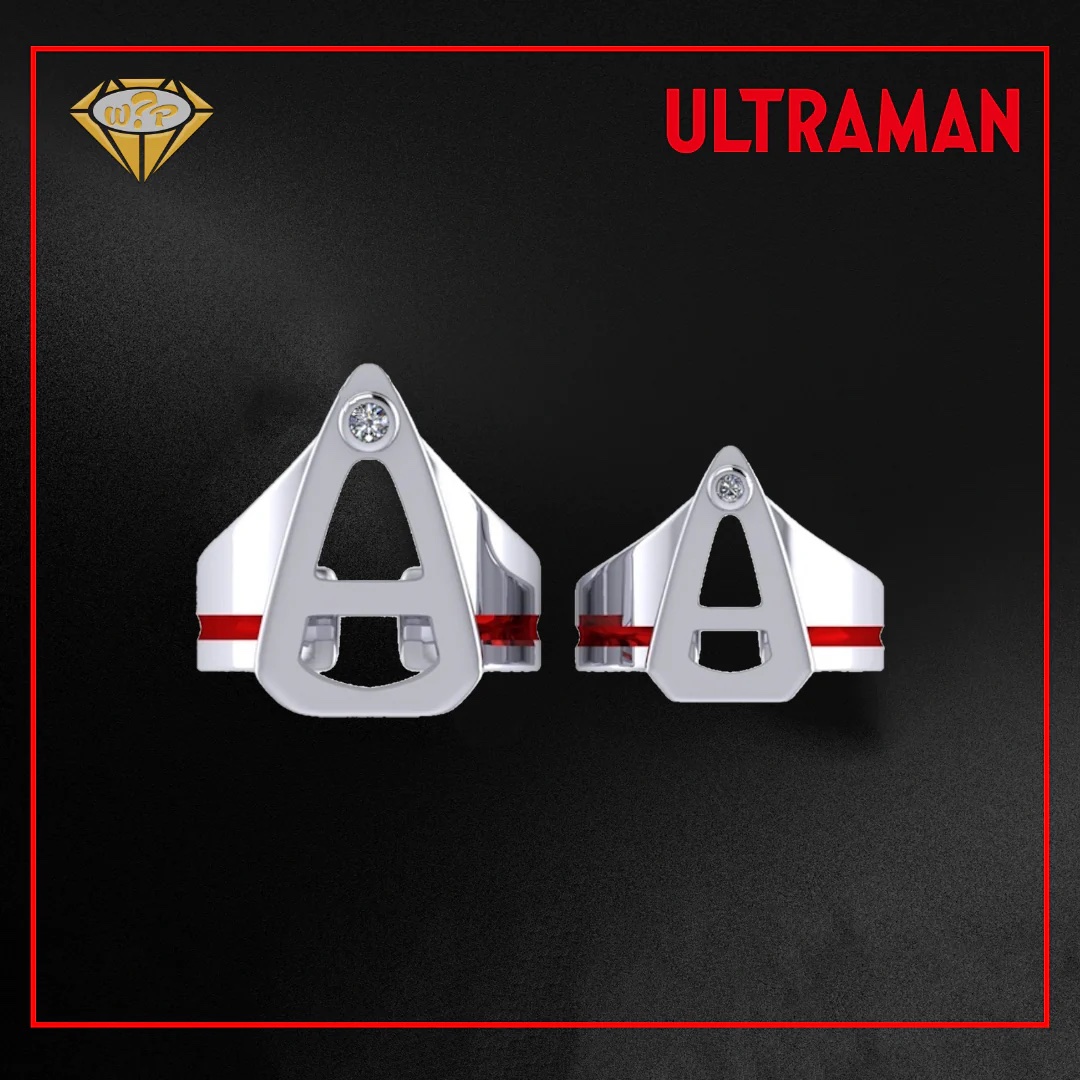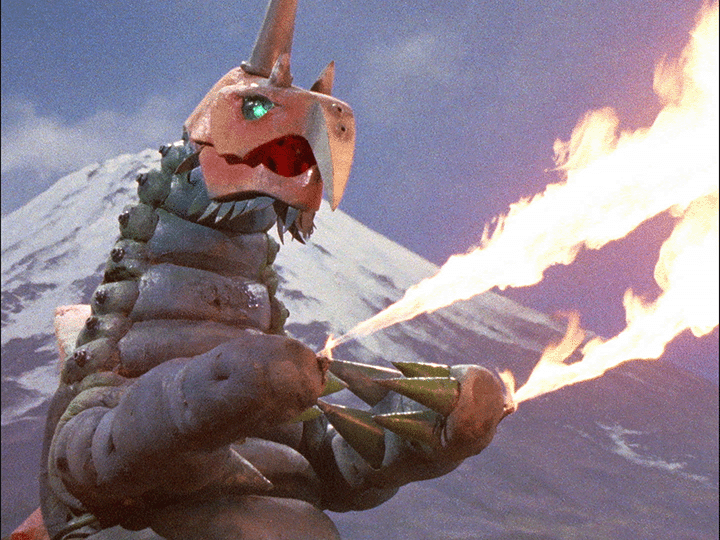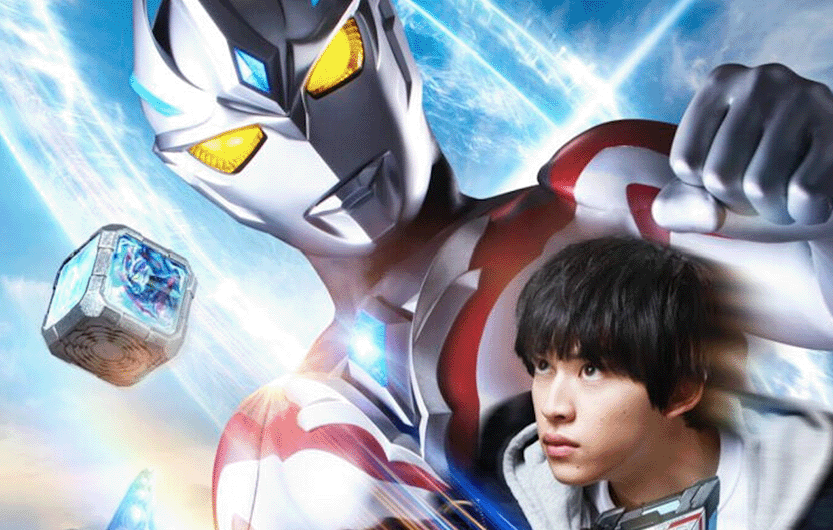EJ
Hello, and welcome to a special Ultraman Connection discussion! I’m EJ Couloucoundis, Editor-In-Chief of Ultraman Connection.
SL
And I’m Sarah Last, staff writer here at Ultraman Connection! You might know my Decker review articles, but we wanted to talk about the series from a different angle today.
EJ
Indeed! After the latest episode, we’ve essentially entered the final third of Ultraman Decker, and with only a few episodes left to go, I thought it was time to discuss a topic that has come up again and again in subtle ways not just in Decker, but also its direct predecessor, Ultraman Trigger: Inevitability and the existence of “fate.”
If you’ve been watching Decker like we have, you’ve met the mysterious Agams, the Alien Bazdor who has orchestrated a lot of the major crises to affect the world during Decker’s time. Sarah, what do you think of him?
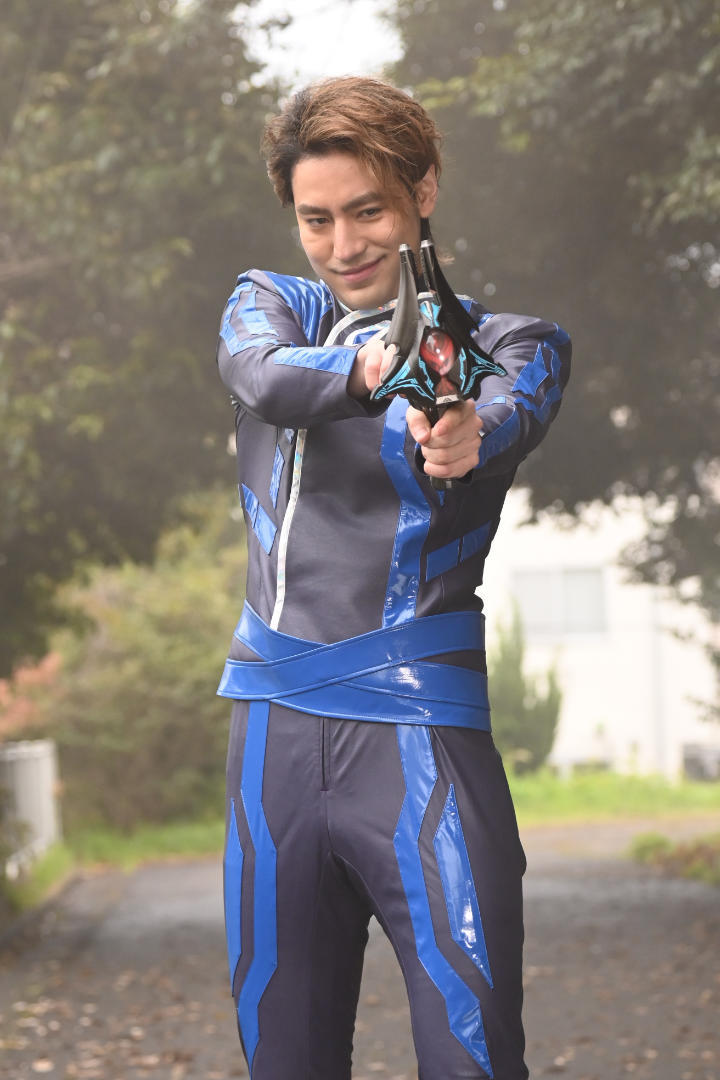
SL
There’s a lot to think about him! You would expect such a personal betrayal to sting more -- and it does, for the characters themselves, I think. However, the show immediately starts setting up Agams as less of an obstacle to be overcome, or an enemy to be defeated, but rather as a tragic figure who needs to be redeemed. Tying his backstory to the supposed failures of humanity in the future, and then the final words from Kanata’s descendant, to find a way to save him, helps shift the audience’s response from anger to something more like empathy. Or at the very least, pity.
EJC
Pity is really the only emotion I can muster for Agams right now. All of this - the entire Sphere Invasion - was caused by him attracting the Sphere to Earth, out of bitterness for the Sphere assault on his home planet of Bazdor in the future; something he blames on future humanity exploring too far into space. And what’s even sadder is that Bazdor isn’t actually gone. Its people are still fighting. And yet, Agams has already given up. To him, the loss against the Sphere is inevitable.
SL
Right, he even admits that his attack against the Earth in Kanata’s time doesn’t serve any purpose beyond his own spite. He’s lashing out against humanity out of despair, rather than trying to fight to help things in his own time.
To get a bit philosophical, “despair” is something more than just feeling sad or angry. Agams' response isn’t that he’s saddened over the fact that his people are still fighting the Sphere, he thinks that it’s impossible for anything good to come out of it. So — in his mind — why should anything good be allowed to happen to the people of Earth either? It’s tragic, but unfortunately, it’s something I think many of us can imagine as a, well, human response to suffering.
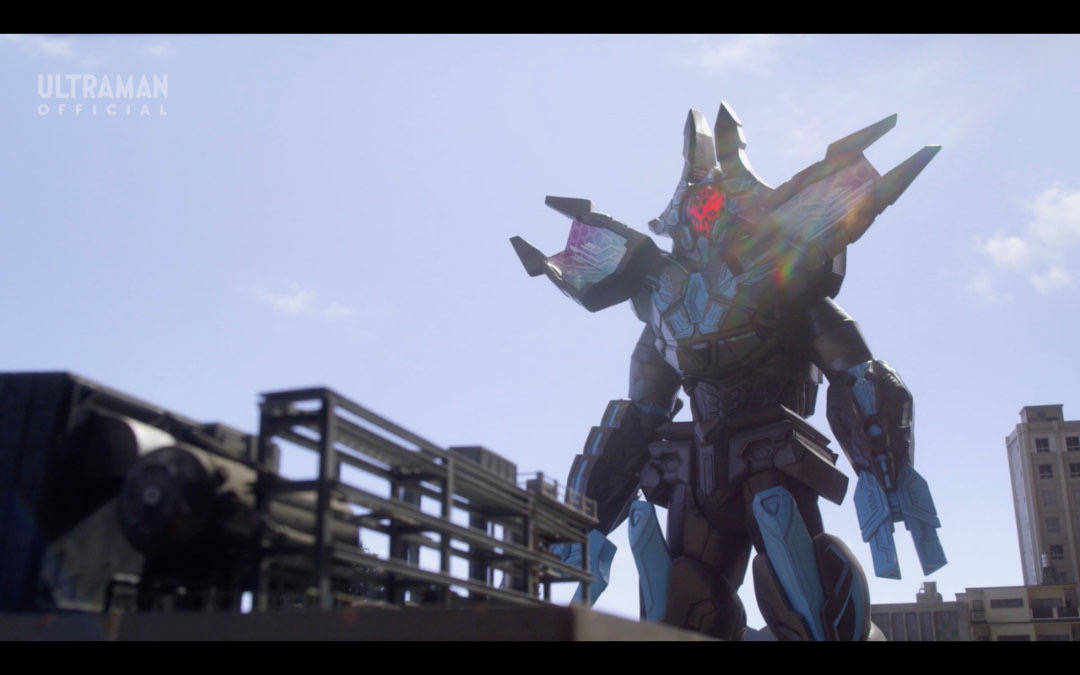
EJ
It’s honestly upsetting, especially since Agams is responsible for the creation of the Terraphaser, one of the strongest artificial beings to ever show up in the Ultraman Series. As many issues as there are with its existence from a moral standpoint (I’m looking at YOU, Ultroid Zero), its impressive power, and its effectiveness against the Sphere, seems to exist in opposition to his belief in the supposed pointlessness of resisting the Sphere.
SL
That’s definitely the irony of the whole situation. If he just decided to use the Terraphaser back in his own time, it would certainly help the people on planet Bazdor fight back against the Sphere! But he either can’t see that possibility, or -- what I think is more likely -- can’t admit that he was wrong.
EJ
Let’s compare all this to Kanata Asumi, the young man who has been acting with the power of Ultraman Decker himself up to this point. When Agams’ betrayal occurred, and a mysterious man arrived from the future to fight him, Kanata had his entire worldview shattered. The origins of the power he has been using all this time are tied to a future far larger than he could have ever dreamed of; one that seems to be tied directly to his own life. After all, the original Ultraman Decker, Decker Asumi… is his descendant.
SL
I find it hilarious though, that Decker Asumi only recognizes Kanata as his ancestor because of rice crackers, not the fact that he can use the power of Decker in the first place! And quite fitting, honestly. Those types of small, everyday connections represent the power of Ultraman better than just the ability to grow to a giant size and drop kick monsters in the face.
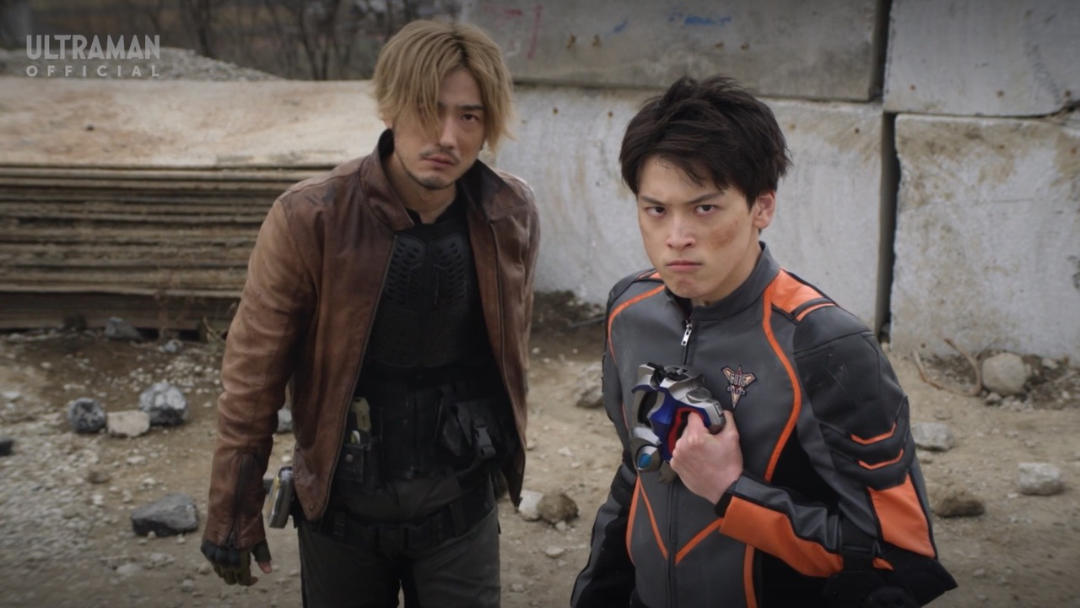
EJ
And when Kanata learns that that small, but vitally important part of his life, the “Space Rice Crackers” that his family sells, lasts all the way into the future, that is a comfort to him, another reason to fight. Compared to Agams, when Kanata is confronted with the future, he doesn’t treat it like an inevitability, but a goal to act towards, to fight for. He knows what can come now and works to reach that future. Meeting his descendant does not make him think “Oh, cool, I don’t have to worry now, this will come eventually.”
SL
It even helped to remind his descendant of that fact as well! I remember, the future Decker Asumi was set on sacrificing himself by fighting both the Spheresaurus monster and the Terraphaser. It wasn’t until Kanata reminded him that he still has a future to return to, friends to reunite with, and something to fight for beyond his own world and timeline, that he felt he could trust Kanata with that power in the present. For Kanata -- and eventually Decker Asumi himself -- the future isn’t assured, but that possibility helps them keep hope, and helps them to fight harder, rather than falling into despair like Agams.
EJ
Thus, Kanata becomes defined as a person who chooses, who blazes a trail through the river of fate rather than being carried along by it impotently. Even the name of the form he unlocks, the form that is his power rather than a borrowed one, is called Decker Dynamic; that adaptability and willingness to change and work crystalized into a (very stylish) giant.
MAN, I love Decker Dynamic so much.
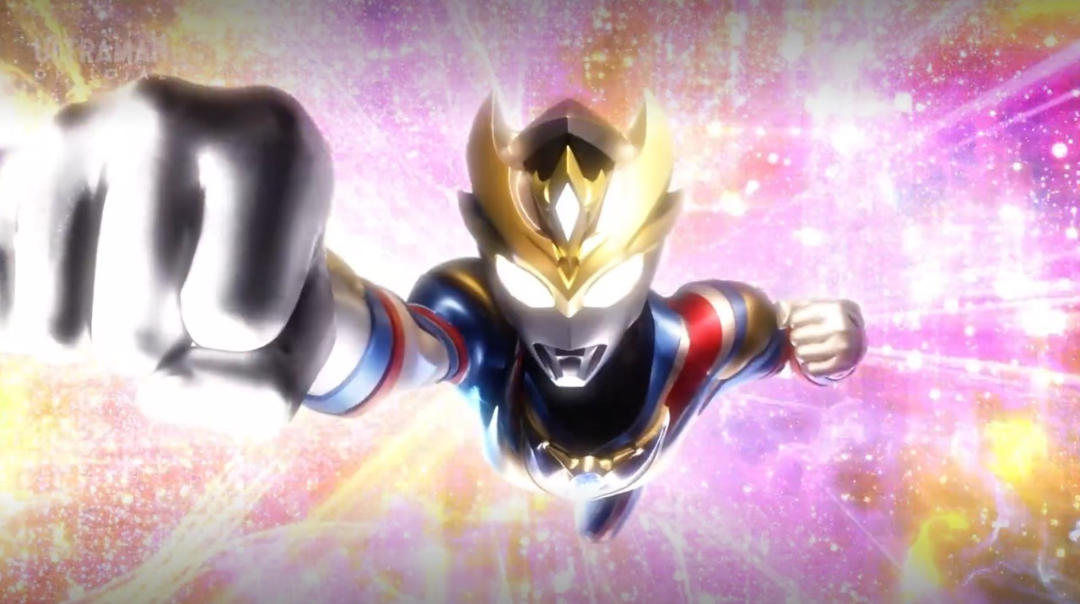
SL
Same, I wasn’t sure what to make of the design when I first saw the images that were released, but seeing it in action for the first time? Hoo BOY. It really does put a spectacular point onto what seems like the main “theme” of Kanata’s character. He doesn’t know everything and isn’t always sure of the correct course of action, but he still chooses to go out and fight, learn from his mistakes every single time he calls on that power, and grow stronger with that determination with each fight.
EJ
Speaking of cool giants, let’s go back ten years (in-universe) to talk about another Ultraman whose power is tied tightly to the concept of fate and inevitability; that being the ancient giant, Ultraman Trigger. Sarah, you and I watched Trigger last year, and one of the most discussed, and perhaps most controversial, elements of the show was the time loop that established the existence of Trigger from his origins as a Giant of Darkness. What were your thoughts about that loop?
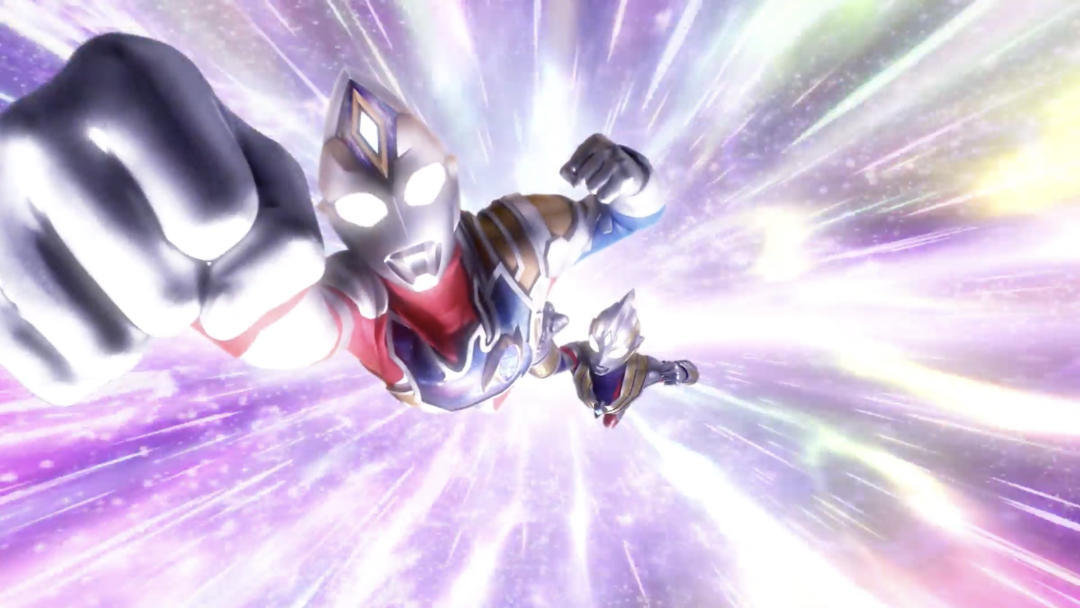
SL
It definitely was an unexpected way to take the character’s origins, but it fits well with Kengo’s character overall in the series. Like Kanata, Kengo was a character fundamentally focused on helping others in whatever ways he could — big and small. But unlike Kanata, Kengo always seemed to be very assured of his own actions, and even his own nature. He wanted to see people smile because that’s just the kind of guy he was.
That time loop was really the first time that ontological nature was challenged, but at the same time it demonstrated why his desire to see others smile was so strong in the first place. Because the first one who he convinced to smile, to be a better person, and seek the good of those around him, was himself. He still had to make that decision, and in the ancient past it proved to be a powerful enough decision to turn the fearsome power of Trigger Dark into something of light and hope instead.
EJ
Kengo is not a “dynamic” character like Kanata; if we look at the metaphor of the “river of fate,” Kengo is a character who is moving with the current, but actively, swimming and letting elements he considers to be “destiny” like his existence as Trigger to be something that strengthens him and sustains him when confronted by doubts or challenges. Learning each new element of the mythos of Trigger, of his own self, helps further excise doubt from his mind as he continues onwards, right up until he sacrifices himself willingly to stabilize the Eternity Core.
SL
That’s a good way of putting it, Kengo becomes who he always was, and always will be, throughout the course of the show. Even when he shows up in the crossover episodes within Ultraman Decker, he hasn’t changed in the sense of having a new motivation. He just plays out that desire to see the happiness of others in a new context. It’s also interesting to think about how much more he can achieve alongside his friends — the previous GUTS-Select team — when they also know who he is and can help support him.
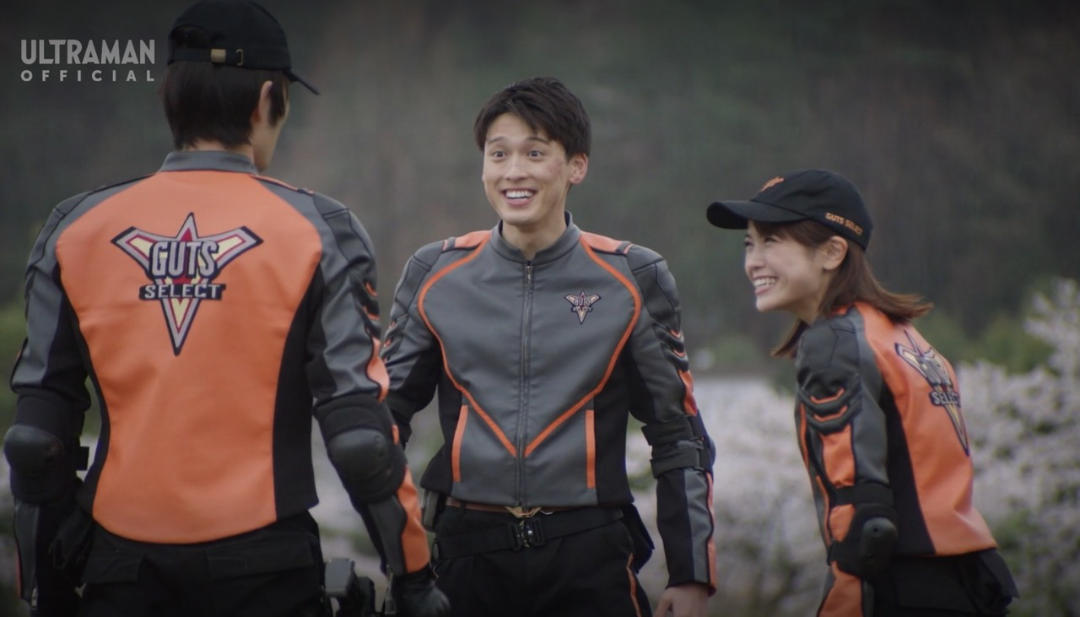
EJ
It’s a comfortable certainty that informs every decision Kengo makes.
Something I also find fascinating is the relationship that Trigger and Decker have to their inspirations in the Neo Frontier Era, that being Ultraman Tiga and Ultraman Dyna. For Trigger, Tiga was the model, to the degree that the show was actively subtitled “New Generation Tiga.” For Decker, the relationship is significantly blurrier; a relationship that perhaps inadvertently highlights how both series treat that concept of inevitability. “What happened once will happen again,” you know? Sarah, you’re a big TDG fan, want to talk about Tiga and Dyna?
SL
Absolutely! I had the opportunity to watch Ultraman Tiga pretty early on in my forays into the Ultraman franchise, and it’s stuck with me ever since. The rest of the erstwhile trilogy is absolutely worth watching, but I feel Tiga remains consistently one of the most popular (if not the most popular) Ultraman series for a few reasons. One of the most important is how it reflects its placement in the history of the Ultraman franchise with its major themes.
You have the first Ultraman show after, what, 16 years off the air, the first entry into the modern world with its new, modern concerns and technological achievements. It’d seem like a huge challenge to try and integrate that novelty in a way that reflects both the classic elements of the franchise, while also being interesting and relevant to the contemporary audience. But Ultraman Tiga does both beautifully -- always focused on the future while also considering the past, sometimes critically, sometimes nostalgically, but always thoughtfully.
EJ
Tiga was my first Ultraman show, and it’s still the series that comes to mind when I think about Ultraman. It’s a series that starts with a prophecy from the distant past, of things that are going to happen. It’s not something that comes up too often, but there really is this portent of, well, inevitability, hanging over the series from the first appearance of Golza and Melba. Compare that to the opening beats of Ultraman Dyna, where the greatest danger of the threat there (The Sphere, in their first appearance) is that nobody knows a SINGLE thing about them. They’re all potential, all mystery, and that’s what makes them terrifying. There’s nothing inevitable about what comes next in Dyna, and anything can happen.
SL
I love that sense of unpredictability and wild variety in a lot of shows, but Ultraman Dyna excels at it. There aren’t a lot of other series where you can go from a wacky slapstick comedy about giant monkeys falling in love, to immediately have a serious exploration of Asuka’s determination to overcome his father’s legacy despite impossible odds.
And like you say, it’s interesting that both Trigger and Decker also wrestle with the expectations of their spiritual predecessors, and both come away with very different ways of thinking about “fate” and “inevitability. First, in Trigger, Kengo comes to accept the continuity — the assured inevitability of his identity as the show goes on. However, for Daigo Madoka, the protagonist of Ultraman Tiga, he finds his strength by distancing himself from who Tiga specifically was 30 million years ago! The two are separate entities, and while Daigo uses Tiga’s power and makes it his own, a lot of the show is focused on not repeating the same mistakes of the past, particularly in the epilogue movie, Final Odyssey.
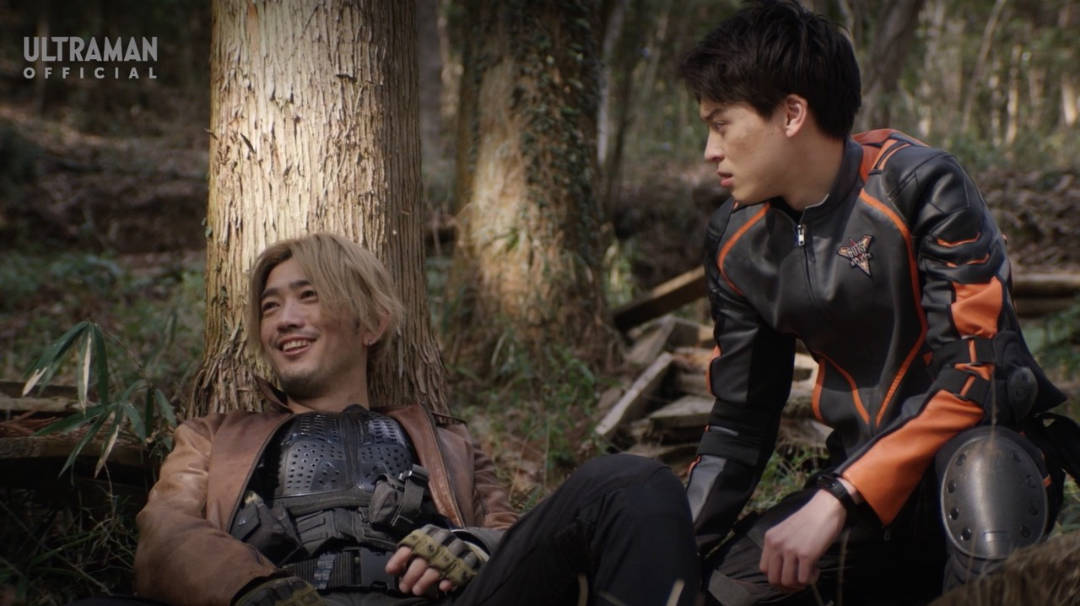
EJ
And in Ultraman Dyna, we get similar parallels between the protagonist, Shin Asuka, and Kanata. Sarah, feel free to disagree with me, but one of the more fun elements of Asuka’s characterization is his blasé attitude towards the future; he pays little heed to internal conflicts when there are people to save and Sphere to defeat. Meanwhile, the search for a purpose is always on the tip of Kanata’s tongue, and though the two have very similar, direct attitudes, they’re coming from very different places. Maybe someday we’ll get to see how the two square up more directly.
SL
I wouldn’t say Asuka is completely blasé about the future, take for example the episode I mentioned above about him following his father’s doomed footsteps when testing an experimental light-speed spaceship. Asuka even admits himself that he’s more anxious and self-conscious than how he appears, and I think a lot of his devil-may-care attitude is more about him trying to deflect that insecurity.
That changes in future appearances, I think, but in his initial series the “Super Fine Play” cocksureness is at least in part an act he plays for others. But regardless of that internal struggle, I agree that both Kanata and Asuka are alike in their direct attitude. Both always look for what they can do for people immediately around them before getting caught up in more abstract concerns about future consequences.
I also agree that I’d love to see the two of them bounce off each other in a future crossover! We already did get that one hint in the future Decker Asumi’s exposition…
EJ
I think we might be straying out of academic discussion if we speculate any further, so let’s end this talk for the day. If you like this format of article, feel free to tell us on the Ultraman Connection Discord. And for more information on Decker, Trigger, and everything else Ultraman, stay on Ultraman Connection!
